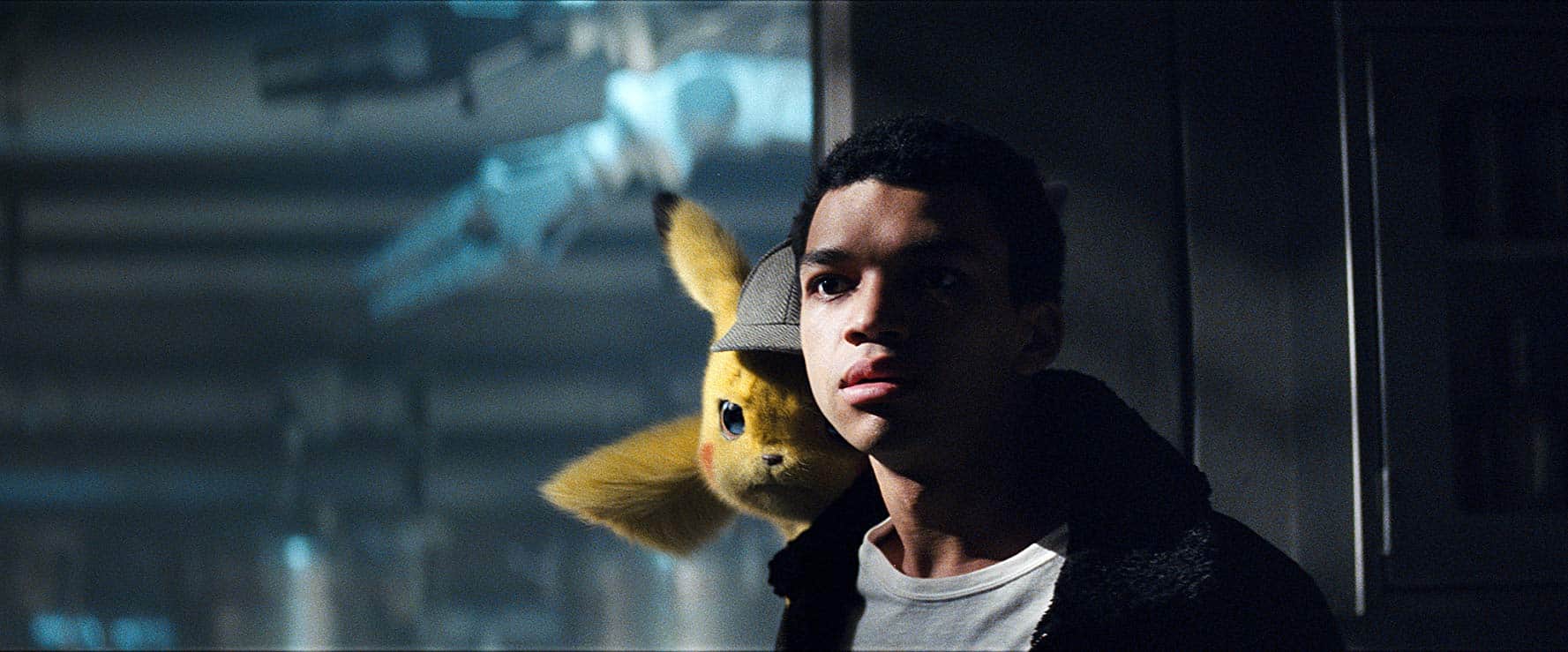[SPOILER ALERT: The following article contains some spoilers about the movie Pokémon Detective Pikachu.]
Last week, Detective Pikachu electrified audiences when it released on the big screen. This is quite a feat for a movie based off of a video game franchise.1 What makes Detective Pikachu such a success is that, to a large extent, the story stays true to the spirit of the franchise it came from. The movie is built on a crucial theme that stretches across the storyline of the games and the anime: the bond you share with your Pokémon is what ultimately leads to success.2
The majority of the movie takes place in Ryme City, a place where Pokéballs and Pokémon battles are not allowed. Instead, people and Pokémon are supposed to live and work in harmony. On the surface, this city is the ideal representation of this principle. We see Pokémon serving as traffic cops and partners of journalists and police officers.
But the real focus of the film is the relationship between Tim Goodman, the protagonist, and Detective Pikachu, our titular character. Their relationship is rocky at the beginning. Tim’s estranged father is presumed dead in a car crash we witness in the first minutes of the film, but Pikachu (his partner) is not convinced he is dead. Tim wants nothing to do with the mystery. He just wants to go back to his life.
Despite Tim’s reluctance to work on this case, he shares a very particular bond with the Pokémon: he can converse with the Pikachu like he can with another person, even though everyone else can only hear the Pikachu say its name (much like any other creature). As Tim slowly begins to work with Detective Pikachu to piece together the clues to this case, the two of them begin to develop their relationship and grow as characters.
In the first trailer, Pikachu says the line, “I push people away and then hate them for leaving.” It seems like a throwaway joke at first, but the line actually carries with it a modicum of truth. Though the amnestic creature seems like he has no filter and bounces around at a mile a minute (aided by his near-constant consumption of coffee), he really does care. But he is also unable to accept that, even though he has hurt others, they will forgive him. Instead, he chooses to run away. It’s only over time that he starts to accept his partnership with Tim on a much deeper level.
By comparison, Tim starts off the film alone, working an unfulfilling job as an insurance appraiser. All of his childhood friends have moved away, and yet he appears willing to accept the solitude. Even his initial interactions with Lucy Stevens, a journalist he meets after first going to his father’s apartment, speak to a desire to get his business completed as quickly as possible while involving as few people as he can.
His loner attitude traces back to his childhood and his relationship with his father. When Tim was a child, his father moved away to be a detective after his mother got sick and died. It ruined Tim’s dreams of being a Pokémon trainer, and as a result he shut down opportunities for relationships with Pokémon.
His adventures with Pikachu finally help change Tim’s perspective. He starts to have fun again and even starts to develop a relationship with Lucy. Both relationships help each of them to accept the love and care of others in their lives. It is not a smooth ride, requiring sacrifice and acceptance of the hard realities of the past. But both emerge as much fuller people because of their bond. And, along the way, they find success and solve the mystery, but not in the way they would have expected.
In contrast, Howard Clifford, the movie’s villain, sees Pokémon more as tools. Howard is confined to a wheelchair and is experiencing the slow effects of aging and dying. Although he speaks about partnership with Pokémon in soaring language, deep down he simply wants to acquire the services of one of the most powerful Pokémon so that he can live vicariously through it.
Howard desires to control Pokémon and use them to his advantage. This lust for power estranges him from his son and from those around him. Once he obtains the power he desires, he believes himself invincible and dismisses all others. In his hubris, he is blind to the power that comes from Tim and Pikachu’s relationship, which allows them to undermine his plan. It is the bond that is shared in relationships that matters, not power and dominance over another.
It is a marvelous feat that Pokémon Detective Pikachu stays so close to the roots of the games. This fun little romp through the world of Pokémon teaches us once again that it is not power or prestige that makes us successful. Rather, it is the care and concern we have for others that allows us to grow and to become our best selves, even amid our faults and failings.
- Historically, movies based on video games have been mediocre at best. The 1993 Super Mario Brothers movie sticks out as a prime example. ↩
- When you defeat your rival for the final time in the first games, he is told that he lost to you because he had “forgotten to treat his Pokemon with trust and love” and that you were able to win because “the bond you share with your Pokemon is marvelous!” ↩


